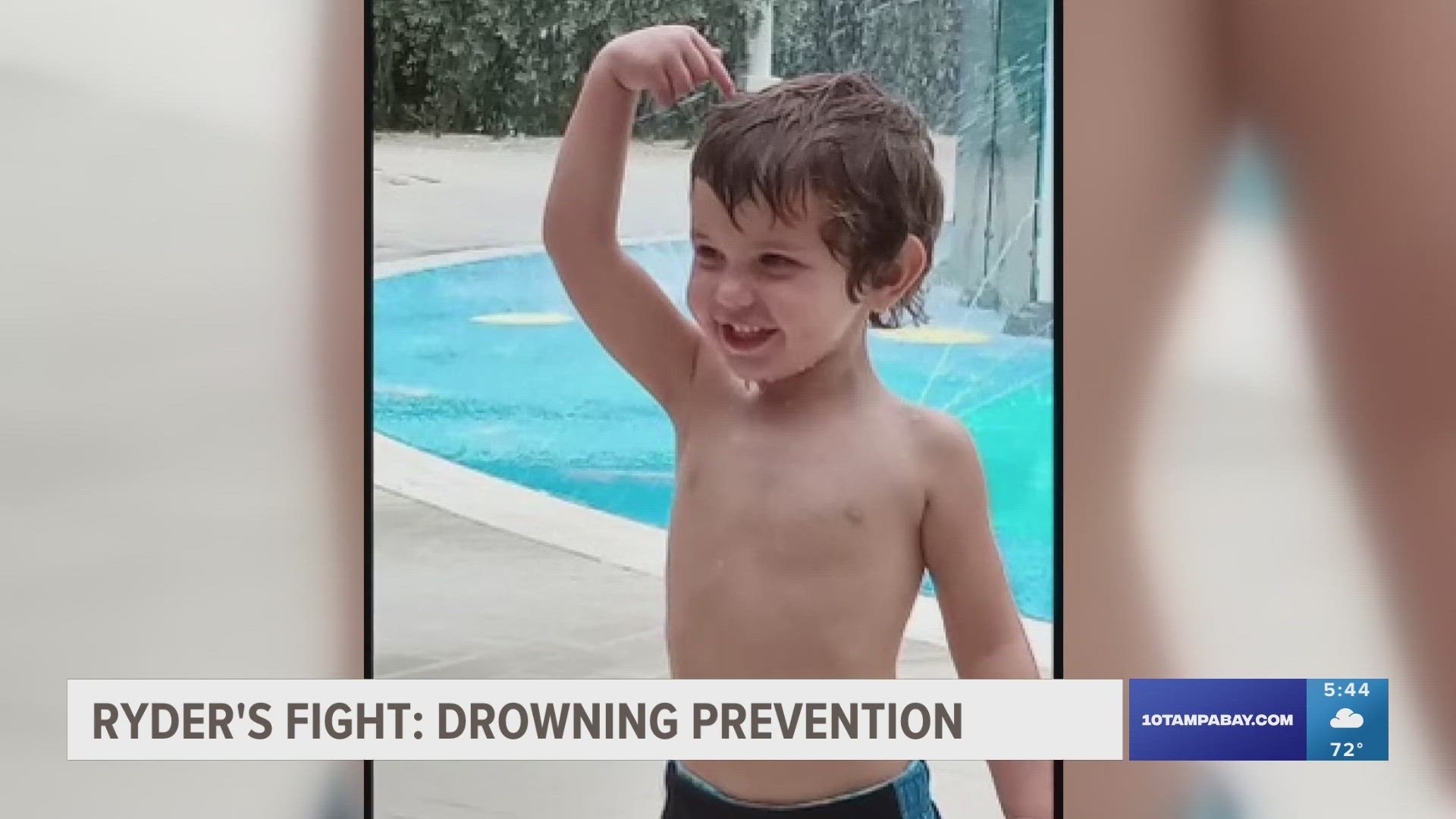BRADENTON, Fla. — Ryder Cornthwait turns three in August. Just a few months after his second birthday, his parents didn't know if he'd see another one.
His mom works overnight shifts, so when she needed someone to watch Ryder, she asked her mom, Chrissy Rogers. Rogers had an appointment that day, so little Ryder went to work with his dad, Justin Cornthwait. Ryder's dad works as an electrician and took the toddler along with him to work at a house in Bradenton.
Rogers recounts when she first learned something went wrong. Her life turned upside down when her daughter called her in a panic.
"I went to get lunch and just walked in the door to the most heart-wrenching call from my daughter, screaming that he was being air-flighted. We didn't know which hospital. Didn't know which way to go," she said.
Ryder had nearly drowned.
Rogers said she later learned the toddler was eating his lunch outside while his father worked inside. The toddler wandered towards the pool. Despite a safety fence surrounding the pool, the 2-year-old found a latch that was unfastened and got in.
"It's a silent death. They don't scream. They don't splash," Rogers said.
Rogers said an off-duty officer was the first to respond. He gave Ryder CPR until EMTs arrived and took over.
Ryder was airlifted to Johns Hopkins All Children's in St. Pete. The doctors told Rogers that by the damage done to his brain, they estimated he was underwater for 10-12 minutes. He was without a pulse for more than an hour.
"When the doctors come in hours later, we were told to say our goodbyes and we refused," Rogers said. "They kept saying if he codes again, we don't want to continue CPR and we all refuse to believe that or to agree to that."
Rogers and Ryder's parents didn't give up and Ryder kept fighting.
Now, more than 4 months later, Ryder continues to fight.
"He can't talk, he can't walk, he can't hold his head up. But he's a fighter and he refused to give up just like we did," Rogers shared.
While his life will never be the same, Rogers believes her grandson survived for a reason. Part of that reason is to help other families prevent the same heartbreak.
"Anything we can do to help somebody save these babies is our goal," Rogers said.
According to the CDC, Florida has the second-highest drowning death rate in the United States. Last year, 97 children drowned in Florida, according to the Florida Department of Children and Families. What makes these tragedies all the more devastating is that they're entirely preventable.
Steps you can take to prevent drowning include teaching your kids basic swimming and water safety skills, building fences to fully enclose pools, supervising children closely, and learning CPR. The CDC has a thorough list of preventative steps and resources available.
As Ryder continues his recovery journey, there are a lot of medical bills along the way. You can view the family's GoFundMe by clicking here.
Malique Rankin is a general assignment reporter with 10 Tampa Bay. You can email her story ideas at mrankin@10tampabay.com and follow her Facebook, Twitter, and Instagram pages.

